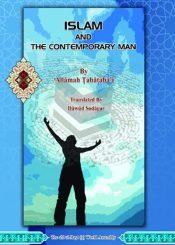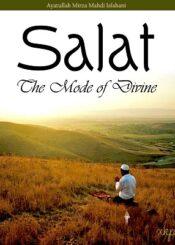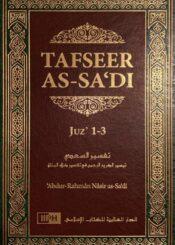The Concept of Religion Part – III
Research by scholars suggest that human history has been associated with religion, and man has never considered himself independent of religion. Even many atheists believe that the world empty of religion is unimaginable. Research on this long-standing phenomenon (using wisdom and citation) has always preoccupied the minds of many people. This article also refers to the same subject.
Human need for Religion
Considering the special role that religion has had in human history, its importance can be realized because the factors like revelation, rationalism, historical evidence reflect the fact that religion has been and continues to be an important part of human life. The ever presence of religion in history and human life raises a question that What is the relation of religion to human life? Why does a person need religion? And why religion is essential for humans?
Why do some people believe that man needs heavenly guidance?
Religion in general, which according to any world view means making rules for life based on special ideology. According to this general meaning, there is no doubt in its being necessary. What is the topic of our discussion and what the religious philosophers and theologians debate about is the need of religion, about the meaning of religion in particular, i.e.; the heavenly religion, in other words, talk of human need for revelation guidance and heavenly laws and that why has such guidance been necessary for mankind?
Reasons behind human need for religion
In this write up, the most prominent examples of the human need for religion which are mentioned in the works of the ancient and contemporary scholars have been discussed:
Religion paves way for the eternal bliss
The outcome of the widespread discussions of religious scholars is that Allah Almighty has not created human beings without reason. On the other hand, the creation of mankind is not disadvantageous or harmful rather, it is advantageous and beneficial. Since Allah is Absolute, therefore, it’s not Allah who benefits from it, rather it’s humans who benefit from it. Allah benefits man in three ways:
A. It is a benefit that is granted to a person without doing any good deed, or when he suffers an unfortunate incident, this is called ‘grace’(Tafaddul).
B. It is a benefit granted to man due some incident that occurred to him and he did not deserve it, this is called ‘exchange’(Avaz).
C. It is a benefit granted to him by obeying Allah's commandments and avoiding what is prohibited, this is called as ‘reward’.
Religion, a path to reach Allah's eternal reward
Of the aforementioned types, the third is of particular importance; in which a person who has the right to be rewarded are specially revered by Allah. On the other hand, this benefit is not possible without following the obligations and to perform that, it is necessary for mankind to be rational. Allah has created humans in such a manner that they are capable of following His commandments and staying away from what his prohibited. This is called religion, following which the man can reach perfection.
The need for a complete and comprehensive law
Human is naturally social. Because of being social, he is in conflict with his fellow beings.
In order to overcome, these disputes, there is a need of perfect law, full of fairness and justice.
On the other hand, it is evident from the history that man cannot fulfill this requirement with his wisdom alone and he can never make a perfect law. This law can only be created by the one who has created humans and other creatures.
So, Allah guides man by sending the revelation through his Prophets (PBUT) and with heavenly laws.
Religion and human life
Human life has two parts, ordinary and intellectual.
Ordinary life is characterized by feelings, movement, reproduction, attraction towards pleasure and distance from danger. These attributes are not just for humans, but also all animals are involved in it. But intellectual or rational life is only specific for humans. The intellectual and reasonable life is the one with consciousness and understanding, to attain perfection.
Religion, answer to the most basic human questions
One cannot find the answers to the basic questions of life without religion that: Who am I? Where did I come from? Who I am with? Where do I go? What have I come for? Without religion there is no virtue and value in human life. Man acknowledges every responsibility because of religion. Human thinking about the greatness and magnitude of this world, does not make sense without reference to the above-mentioned wisdom. Pure sense of jurisprudence, can only be achieved through religion, and this responsibility is different from ordinary human life, and without this this man lives like a foolish animal.
Religion and the training of moral virtues
Moral virtues are among the most visible signs of human spiritual development; therefore, good ethics have always been the center of attraction for the humanitarian reformers. Human beings adhering to morality are praised and revered by all nations. Individual and society devoid of morality are like a body without a soul and a tree without fruits.
Despite the presence of animalistic instincts, how can good ethics be achieved?
The question that arises here is that how can human beings achieve moral perfection? This question becomes even more serious when it comes to the fact that humans have a series of instincts and animalistic and erotic inclinations that are naturally opposed to ethics and morality. However, there is no escape from them, because these inclinations exist within human beings. The answer to the question is that humans have wisdom, that when used correctly, they can satisfy their instincts and animal desires in a manner that is not incompatible with ethical virtues, instead, they can be used in the service of moral ethics. Two things are needed to accomplish it:
Having adequate knowledge of all the dimensions, capabilities and secrets of human existence; one should have a role model that manifests ethical values, because it has been experienced that the role of a positive role model is very decisive in human training. The first need is that of a divine religion and other that of the Prophets and Imams (PBUT).
Religion reduces anxiety and concern
Belief in religion and religious teachings, especially the belief in Allah who is merciful and is aware of all things and capable of anything, in addition to make the encountered hardships easy, it also reduces the anxiety and worry about the future. The person who believes in God does not think of anything other than carrying out the divine commands, and after making efforts in fulfilling them, he is not worried about the failure, and considers even getting killed in this way to be a success.
قُلْ هَلْ تَرَبَّصُونَ بِنا إِلاَّ إِحْدَى الْحُسْنَیَیْنِ؛
Say: “Do you wait for us (anything) except one of the two best things (martyrdom or victory [Surah Taubah: 52]
Religion and establishment of unity and integrity
The role of religion in creating unity and integrity is such that people like Durkheim who equated God with society believed that religious people, through religious practices, unconsciously strengthen social relations and emphasize the authenticity of society and the priority of collective interests.
Will Durant (1885-1981) also considers religion as a factor in preventing social class warfare. The fact is that monotheistic religions guarantee the unity of the community more than any other factor. A quick look at history shows that divine religions have always carried the message of peace and friendship, establishing justice as one of their most important goals.







